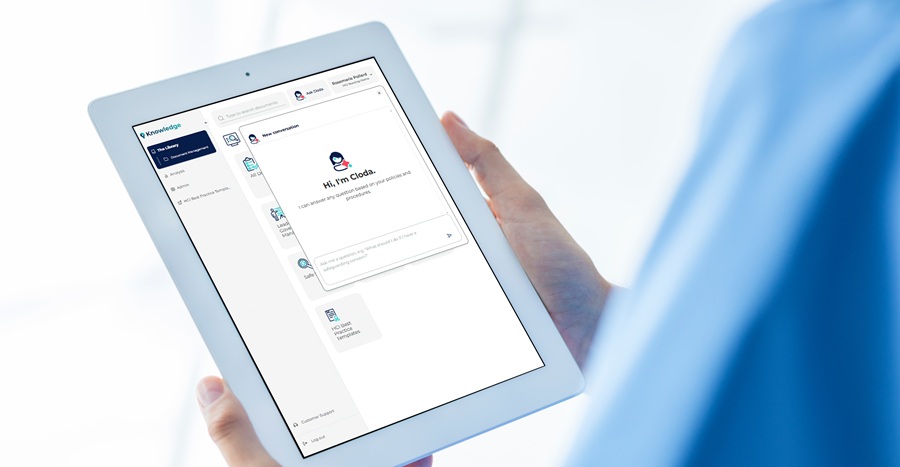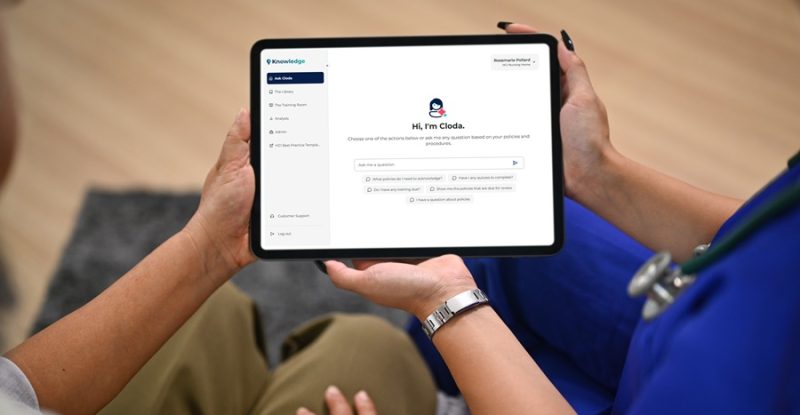
Introduction
The regulatory environment in healthcare is evolving at a rapid pace. For decades, compliance programs focused on ensuring care providers followed the right processes, checking boxes, maintaining documentation, and conducting regular audits. However, the landscape is shifting. Regulators and patients alike are demanding more: evidence that compliance activities are not just performed, but that they actually deliver improved patient outcomes, reduced risk, and higher quality care.
This new paradigm – outcome-based compliance – requires healthcare organisations to rethink the way they approach governance, risk, and compliance. It is no longer enough to simply prove that policies are read and procedures are followed. Success is now measured by the tangible impact these processes have on patient safety, quality metrics, and organisational performance.
In this blog, we explore the shift to outcome-based compliance in healthcare, the challenges and opportunities it presents, and how Cloda and The Knowledge Library are uniquely positioned to help organisations not only meet, but exceed, these new expectations.
Before we dive in, we would love to hear your thoughts below!
Poll: How confident are you that your current compliance efforts improve patient outcomes?
Cast your vote and see what your peers say!
The Shift: From Process Compliance to Outcome-Based Compliance
What is Process Compliance?
Process compliances involved ensuring that all required policies, procedures, and protocols are documented, communicated, and acknowledged. It is a traditional approach which focuses on adherence to rules and completion of mandated tasks (e.g., staff reading and signing off on policies). Organisations measure compliance this audits, checklists, and documentation reviews.
What is Outcome-Based Compliance?
Outcome based compliances is demonstrating that compliance activities directly contribute to improved patient care, safety, and organisational effectiveness. It focuses on the results achieved by compliance efforts (e.g., reduced infection rates, improved patient satisfaction). Organisations measure compliance with performance metrics, quality indicators, and evidence of continuous improvement.
Why is the Shift Happening?
- Regulatory Expectations: Regulators are looking for evidence that compliance programs deliver real-world results, not just policy adherence.
- Value-Based Care: Payment models are increasingly tied to outcomes, not just services rendered.
- Risk Management: Proactive identification and mitigation of risks is now a core requirement.
- Stakeholder Demands: Patients, staff, and the public expect transparency and accountability.
The Challenges of Outcome-Based Compliance
While the benefits of outcome-based compliance are clear, achieving it is not without challenges:
- Data Complexity: Healthcare providers must collect, analyse, and interpret large volumes of data from multiple sources.
- Real-Time Visibility: Delays in data collection or reporting can hinder timely decision-making.
- Staff Engagement: Ensuring that frontline teams not only understand policies but apply them effectively in practice.
- Continuous Improvement: Compliance must be an ongoing process, not a one-time event.
- Demonstrating Impact: Linking compliance activities directly to outcomes requires robust analytics and reporting tools.
Knowledge: Enabling Outcome-Based Compliance
We recognise that the future of compliance is outcome-driven. That is why Knowledge is purpose-built to help healthcare organisations transition from process-focused compliance to a model that delivers measurable results.
Core Capabilities Supporting Outcome-Based Compliance
Cloda: Your Digital Compliance Assistant
- Instant Answers: Staff can ask Cloda a question, and she analyses all your procedures to provide an effective summary instantly.
- Multilingual Responses: Staff can query Cloda in their native language, Cloda responds in their native language. Only from approved procedures.
- Automated Summaries: Cloda distils complex policies into clear, actionable guidance, reducing cognitive load and errors.
- Supports Understanding of Procedures: Cloda can provide an automatic comprehension quiz before policy acknowledgement, supporting true understanding of procedures.
Real-Time Compliance Insights
- Continuous Monitoring: Track compliance activities, policy acknowledgements, and quiz completion rates and policy review dates in real-time.
- Performance Dashboards: Visualise key compliance and quality metrics at organisational, departmental, and individual levels.
- Trend Analysis: Identify patterns, knowledge gaps, and opportunities for improvement with actionable analytics.
Intelligent Policy and Procedure Management
- Mobile-Enhanced Access: Ensure staff can access the latest protocols and policies at the point of care, wherever they are.
- Version Control: Maintain a single source of truth for all organisational policies, reducing confusion and risk.
- Comprehension Quizzes: Assess and reinforce staff understanding of critical procedures, moving beyond mere acknowledgment.
Practical Example: Hand Hygiene Compliance
Let’s illustrate the difference between process and outcome-based compliance in practice, and how Knowledge supports both.
Process Compliance
- All staff are required to read and acknowledge the organisation’s hand hygiene policy.
- Compliance is measured by the percentage of staff who have signed off on the policy in the system.
- Audits are conducted quarterly to ensure documentation is up to date, staff are implementing the procedures on the ground and review of incident data.
Outcome-Based Compliance with Knowledge
- Staff access the hand hygiene policy instantly via mobile devices at the point of care.
- Cloda provides quick answers to questions about correct hand hygiene techniques.
- Comprehension quizzes ensure staff not only read the policy but understand it.
- Real-time dashboards track hand hygiene policy comprehension rates by department.
- Incident data is analysed in relation to infection rates or hand hygiene related incidents.
- Reports demonstrate a direct correlation between increased policy access and comprehension and reduced infection rates over time.
The Knowledge Advantage: Key Differentiators
Proactive Compliance Management
- Move from reactive audits to proactive risk identification and mitigation.
- Use predictive analytics to anticipate compliance challenges before they impact outcomes.
Empowered Staff
- Equip teams with the tools and knowledge to make compliant decisions in real time.
- Foster a culture of continuous learning and improvement.
Demonstrable Value
- Provide regulators, and stakeholders with clear evidence of compliance impact.
- Strengthen organisational reputation and competitive positioning.
Seamless Integration
- Data flows freely, reducing manual effort and the risk of information silos.
Efficiency Gains
- Time recovered through automation and faster information access can be redirected to frontline care.
- Senior leadership gains transparency into organisational compliance performance.
Lower Risk & Incident Rates
- Real-world patient safety metrics become visible and actionable.
- Knowledge gaps are identified, and care teams are supported before incidents occur.
Continuous Improvement: The Heart of Outcome-Based Compliance
Compliance is not a destination, but a journey. Outcome-based compliance demands a commitment to continuous improvement, driven by data and feedback.
How Knowledge Supports Continuous Improvement
- Automated Policy Updates: Cloda automatically provides answers from the most recent approved documented processes. This ensures staff are utilising the latest regulatory requirements and best practices.
- Learning Loops: Comprehension quiz results inform targeted training and support, closing knowledge gaps before they become compliance risks.
- Dynamic Reporting: Dashboards and reports evolve as new metrics and priorities emerge.
Getting Started: Transforming Compliance in Your Organisation
Transitioning to outcome-based compliance may seem daunting, but with the right tools and support, it is entirely achievable. Here’s how:
Step 1: Assess Current State
- Review existing compliance processes, documentation, and reporting capabilities.
- Identify gaps between process adherence and desired outcomes.
Step 2: Set Outcome-Focused Goals
- Define key performance indicators linked to compliance objectives (e.g., reduction in adverse events, improved audit scores).
- Engage stakeholders to ensure alignment with organizational priorities.
Step 3: Implement Knowledge and Cloda
- Deploy The Knowledge Library for centralised, mobile policy management.
- Activate Cloda to support staff with instant answers and comprehension assessment.
- Configure dashboards and reports to track outcome metrics.
Step 4: Monitor, Analyse, Improve
- Use real-time data insights to monitor progress and identify areas for improvement.
- Iterate on policies, training, and processes based on evidence and feedback.
Conclusion: Don’t Let Knowledge Be a Risk Factor
The shift to outcome-based compliance is not just a regulatory trend, it is a fundamental change in how healthcare organisations deliver safe, high-quality care. By focusing on results rather than just processes, organisations can drive meaningful improvements in patient outcomes, reduce risk, and build lasting trust with stakeholders.
Knowledge stands at the forefront of this transformation. With real-time data insights, intelligent policy management, and a digital assistant that empowers staff at every level, Knowledge enables healthcare providers to move beyond compliance checklists and demonstrate real-world impact.
If your organisation is ready to embrace outcome-based compliance, we invite you to explore how Knowledge can make that journey smoother, smarter, and more successful.
Book a demo today and see the future of compliance in action. Contact info@knowledge.care or call 01 629 2559.

Book a Demo (1)
"*" indicates required fields



